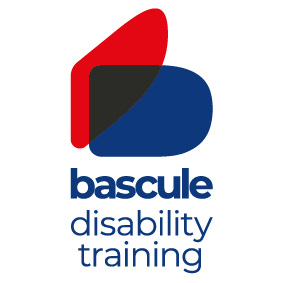The impact of untrained managers on staff with disabilities

More and more organisations are embarking on a journey toward becoming more inclusive and diverse, but without a solid strategy in place, they are likely to encounter significant challenges and obstacles along the way.
When you consider that almost half (47%) of employers lack any formal EDI strategy or action plan, (with 25% admitting their efforts are reactive or because of compliance requirements) – those challenges are likely to be widespread.
It goes without saying that if you employ people with disabilities (and given that 80% of all disabilities can be hidden, you likely do), it’s vital that within your strategy, you are able to offer a suitable environment, supportive colleagues and accessible surroundings that cater to their needs, otherwise they will face many hurdles, that will likely lead to them leaving, or worse.
Staggeringly, 82% of people are promoted to being a manager without any proper training for the role, (Small Business Charter) a problem commonly understood as ‘accidental managers ‘. Failing to train managers about the importance of diversity and inclusion compounds this and undermines all other efforts to create an inclusive workplace and should be an essential element of any EDI strategy. With 73% of surveyed people with disabilities stating that they believe their leaders fail to foster respect and inclusivity, it’s evident that the gap in awareness training for managers is presenting problematic issues.
Reasonable Adjustments
Managers, supervisors, and leaders should all be thoroughly trained to understand the critical importance of providing reasonable adjustments for employees with disabilities.
Sadly, it was recently revealed that this is not quite the case, as employees with disabilities are waiting far too long for reasonable adjustments, with some having to constantly push for change, or worse still, make them themselves. 78% of employees with disabilities revealed that, rather than wait and chase their managers, they themselves had to initiate the process of getting adjustments.
A failure like this has many serious consequences. Firstly, it goes without saying that a staff member will experience difficulties in bringing their best selves to work, which impacts their productivity, increases stress, and can potentially be detrimental to their overall health and wellbeing. It also leads to decreased job satisfaction, absenteeism, all of which can lead to resignation and therefore poor staff retention- or worse- a discrimination claim. The consequences to an organisation are claim payouts, recruitment bills, damaged reputation as an inclusive employer, a loss of morale as well as a huge back step in terms of any efforts already made towards becoming a more inclusive employer.
Non-Apparent Disabilities that Remain Hidden
Another significant problem with managerial staff who have no disability awareness training, is the management of employees with hidden disabilities.
Firstly, if your managers do not show any awareness, understanding, support or empathy (in the ways we just mentioned), and reasonable adjustments are clearly not being met- what are the chances of staff with hidden disabilities coming forward and revealing theirs?
Pretty slim.
The consequences of that can be very difficult for staff, impacting their lives in many ways, for example, if staff feel comfortable revealing their disability, they are:
- More than twice as likely to feel happy or content at work than those who have not disclosed (65% versus 27%),
- Less likely to regularly feel nervous or anxious than those who have not disclosed (18% versus 40%)
- Less likely to feel isolated than those who have not disclosed (8% versus 37%)
Furthermore, as our previous blog pointed out, even if a staff member has not disclosed their disability, the onus is on employers to be aware of their employees' health and to take appropriate steps to support them, regardless of formal disclosure. In other words, you can still discriminate against someone’s disability- even if they haven’t disclosed.
So, if managers have an open, comfortable, supportive approach that encourages people to talk about their disability, they could enhance the lives of certain staff members, once they choose to reveal their disability. Without that openness, companies are missing out on an opportunity to truly accommodate and retain diverse talent.
Missed Opportunities for Inclusion and Growth
Perhaps the most significant consequence of leaving managers untrained in disability awareness, is the missed opportunity to attract and retain talented individuals with disabilities.
Companies that do not foster an inclusive environment, where employees feel supported and understood, lose out on the innovation, creativity, and resilience that employees with disabilities often bring to the table. In today’s competitive marketplace, businesses can’t afford to overlook this potential. And, you don’t have to look far to find the wealth of evidence that proves how beneficial it is to have a diverse workforce.
For example, the Boston Group found that companies with diverse management teams bring 19% higher innovation revenue. Deloitte research showed that company diversity is directly related to employee engagement. Higher employee engagement can lead to higher job satisfaction, which in turn, can lower the turnover rate.
Also, companies that have proper EDI strategies in place tend to outperform their competitors financially – research shows that these organisations are 120% more likely to achieve their financial goals. Can you afford for your inclusivity and diversity to be hindered by a lack of managerial training?
Then there’s morale. When managers are ill-equipped to handle the needs of staff with disabilities, it can lead to a deterioration of morale across the whole organisation. No one likes to see unfair treatment, even if it’s unintentional or accidental, and so negative treatment towards any staff will erode teams and their trust in leadership, which impacts engagement, cohesion, creativity and collaboration.
Furthermore, companies that fail to support their disabled employees risk damaging their reputation, both internally and externally. In a world where diversity and inclusion are increasingly seen as markers of an ethical and forward-thinking organisation, companies that neglect these areas may find it difficult to attract top talent or retain their current workforce.
Training and developing awareness
The good news is, high quality, user-led disability awareness training is remarkably effective in providing managers with the skills they need to best cater to the needs of the staff members they manage.
At Bascule, we are able to provide training modules specifically for your managers, that address everything discussed here, and much more. As well as educating managers on the legal aspects surrounding disability and the Equality Act 2010, we provide trainees with an understanding that fosters empathy, that encourages openness, educates staff on reasonable adjustments, disclosure of hidden disabilities, communication, etiquette and much more.
So, don’t wait for the consequences of a gap in training to present themselves, before you are forced to address it. Instead, make a positive change today, and create that environment where everyone thrives, and you present all your staff with a workplace culture that is inclusive for all.
For more information on the training we can provide for your managerial workforce, contact us today on info@bascule.com



